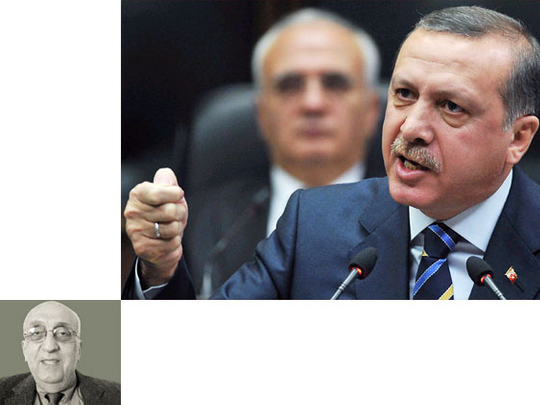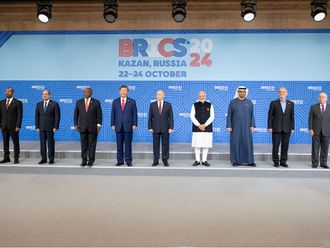
Why does Barack Obama insist on burying his head in the sand, much like Benjamin Netanyahu, and take a back seat rather than seriously pursue, as expected, a resolution of the Palestinian-Israeli conflict, now in its 63rd year?
It seems what got the American president and the Israeli prime minister to climb walls recently was Palestinian President Mahmoud Abbas’s diehard determination to take the conflict to the United Nations later this month.
Abbas, it appears, has given up on Obama and Netanyahu, who unlike the US president, has yet to spell out, much like his predecessors, the outlines of a fair settlement. Much to the disappointment of many Palestinians who nowadays favour a one-state solution, Abbas has said he is now willing to accept 22 per cent of the Holy Land — less than half of what was mandated by the UN Partition Plan of 1948 which the Arab world had originally turned down.
The several armed conflicts that ensued between the Arab states and Israel since then had been inconclusive. The penultimate regional war in 1967 ended with Israel controlling the Palestinians’ West Bank, the Gaza Strip and occupied east Jerusalem.
In the last conflict, in 1973, Israel took over the Sinai Peninsula from Egypt and a portion of the Golan Heights from Syria.
UN Resolution 242, adopted unanimously by the Security Council in 1967, had ordered Israel to return to the 1967 armistice lines. Since then, Israel has snubbed the ruling and remained in virtual control of the Occupied Territories and a small but strategic Syria area on the shores of the Sea of Galilee or Lake Tiberias.
Obama suggested last May during his public confrontation with Netanyahu and a headline-grabbing visit to Washington that the Palestinians and Israelis need to resume negotiations on the basis of the 1967 UN resolution, allowing some land swaps between the two parties, presumably to accommodate some illegal colonies created in the Occupied Territories.
But Netanyahu, who had received the same week unprecedented accolades at a joint Congressional session, remained adamant and arrogant, refusing to budge from the areas.
No progress
The economic crisis that the US is now facing alongside Europe coupled with a shameless visit by 81 Congressmen to Israel, have shackled Obama. Even the Quartet of the Middle East, comprising the US, Russia, the European Union and the UN, tasked with shepherding a settlement, failed to come up with any tangible achievement.
Out of the blue emerged Turkey’s impressive prime minister, Recep Tayyip Erdogan. He has been seething over the Israeli commando attack on the Mavi Marmara last year. The attack killed nine of its passengers, including a Turkish American.
Erdogan has insisted that Israel apologise for the unwarranted assault, pay compensation to the nine victims and lift the blockade on the Gaza Strip where some 1.5 million Palestinians live.
A recently published dubious report from a UN-appointed investigative committee virtually exonerated the Israelis.
In response, the disappointed Turkish government is planning to raise the case before the International Court of Justice.
Turkey also kicked out the Israeli ambassador and downgraded its diplomatic ties with Israel to the level of second secretary. It suspended all military agreements and Foreign Minister Ahmet Davutoglyu promised to take “whatever measures it deems necessary in order to ensure the freedom of navigation in the East Mediterranean”.
The Turkish president is planning a trip to Egypt next week and from there he hopes to pay a visit to Gaza, a step unmatched by any Arab leader. How will the Obama administration face what one Israeli columnist described as Israel’s “diplomatic tsunami” remains to be seen, but undoubtedly it will be taking a great risk if it totally stands on the side or Israel or remains silent.
George S. Hishmeh is a Washington-based columnist. He can be contacted at ghishmeh@gulfnews.com








